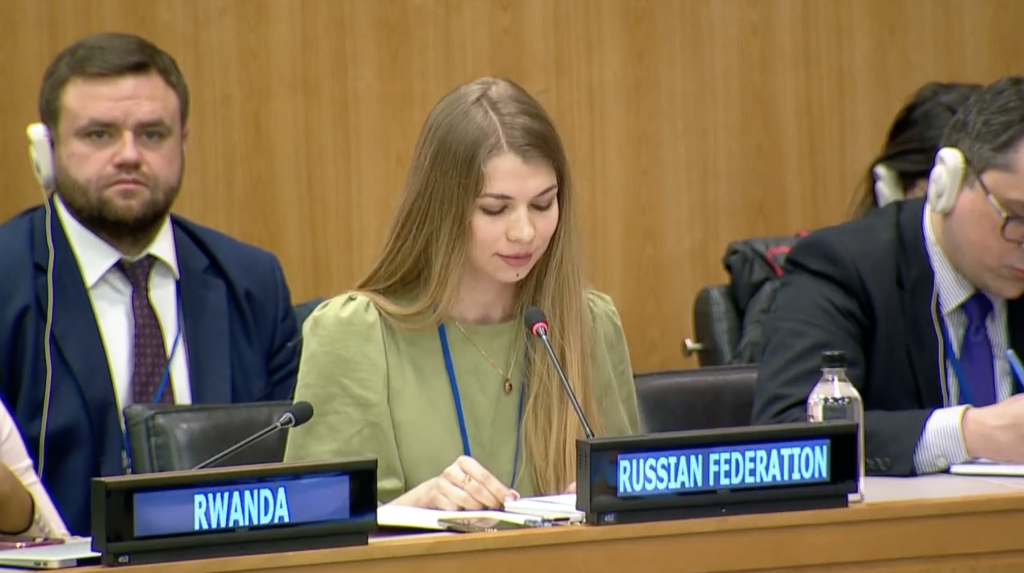Statement by Representative of the Russian Federation Ms.Irina Tyazhlova at the fourth substantive session of the Open-ended Working Group on security of and in the use of ICTs 2021-2025 on Rules, norms and principles of responsible behavior of States
Mr. Chair,
Distinguished ladies and gentlemen, colleagues,
The UN GA resolution 75/240 requires the OEWG to continue – as a priority – the development of rules, norms and principles of the responsible behavior of States in information space. The work in this direction has been carried out under the UN auspices at the initiative of the Russian Federation for nearly 25 years.
However, as demonstrated during the discussions of the Group, challenges and threats in the information field continue to increase. A number of States are still developing information and communications technology capabilities for military purposes, including offensive ones (A/RES/76/19, PP3). It is obvious that the existing voluntary and non-binding rules of behavior are not enough to effectively regulate the use of ICTs.
The solution to this problem is seen in forming an international legal regime for regulating information space through the development of a legally binding multilateral international treaty under the UN auspices (A/75/816, A/76/135, A/RES/76/19; A/RES/77/36). Such a document should provide a solution to the problem of preventing and settling interstate conflicts, promoting the entirely peaceful use of ICTs and providing a framework for cooperation among States for these purposes.
We know that a number of States are afraid of such initiatives like fire, torpedoing the relevant discussion at the international platforms trying to maintain the purely voluntary nature of the abovementioned rules. Obviously, they want to keep their hands free in information space. However, the statements of the delegations at the OEWG sessions clearly show that most countries are advocating the need to develop a legally binding instrument. We have already faced a similar situation with the topic of combating information crime. At first, a narrow group of States was strongly against the Russian proposal to develop a universal convention in this area. And now, under the UN auspices, the relevant the relevant Ad Hoc Committee is working, where all Members States are negotiating the text of a future international treaty. We are sure that the situation will similarly develop with regard to the security in the use of ICTs.
In this regard, the Russian Federation requests the Chair of the OEWG to disseminate within the Group the concept of a UN convention on ensuring international information security. We would like to submit this document to the secretariat of the OEWG. Our initiative is a practical development of a long-term discussion on the formation of a regulatory regime in the ICT-field. It is based on the recommendations of the annual UN GA resolutions entitled “Developments in the Field of Information and Telecommunications in the Context of International Security”, as well as the consensus reports of the OEWG 2021 and the 2010, 2013, 2015 and 2021 Groups of governmental experts. The document takes into accounts the initiatives of States outlined in the Summary by the Chair of the first OEWG, and is structured for drafting a future convention.
We would like to emphasize that Russia presents this proposal as food for thought and a conceptual basis for further work. We are open to discussion and taking into account constructive suggestions and comments. In our view, the draft convention should be developed under the UN auspices with consideration of the views of all Member States within the negotiation format which should be established for these purposes.
A future treaty should provide mechanisms for monitoring the fulfillment of its provisions by the participants, making amendments and additions, exchanging views on the implementation of the document, as well as on the settlement and peaceful resolution of disputes. Only after the adoption of such a universal legally binding agreement can we talk about the accountability of countries for compliance with its provisions.
Thank you.
